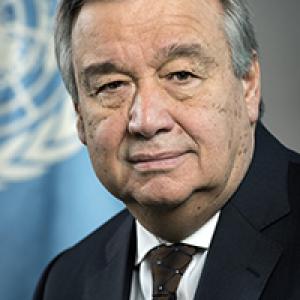It incites violence, exacerbates tensions, and impedes efforts to foster mediation and dialogue. It is one of the warning signs of genocide and other atrocity crimes.
Hate speech is often aimed at vulnerable groups, reinforcing discrimination, stigma and marginalization. Minorities, women, refugees, migrants, and people of diverse sexual orientation and gender identity are frequent targets. Social media platforms can amplify and spread hate speech at lightning speed.
Misguided and ambiguous responses to hate speech – including blanket bans and internet shutdowns – may also violate human rights by restricting freedom of speech and expression. They may even silence some of those best placed to counter hateful narratives: human rights defenders and journalists.
But we are far from powerless in the face of hate speech. We can and must raise awareness about its dangers, and work to prevent and end it in all its forms.
The United Nations Strategy and Plan of Action on Hate Speech is our comprehensive framework for tackling the causes and impacts of hate speech, in line with international human rights standards.
Our offices and teams around the world are confronting hate speech by implementing local action plans, based on this strategy.
Education initiatives, positive speech campaigns, research to understand and address root causes, and efforts to promote inclusion and equal rights all have an important role. Religious, community and business leaders can all play their part.
The United Nations is consulting governments, technology companies and others on a voluntary Code of Conduct for information integrity on digital platforms, aimed at reducing the spread of mis- and disinformation and hate speech, while protecting freedom of expression.
As we mark the International Day for Countering Hate Speech, let us renew our efforts to prevent and end this toxic and destructive phenomenon, while promoting inclusive, just and peaceful communities and societies and protecting the rights and dignity of all.


